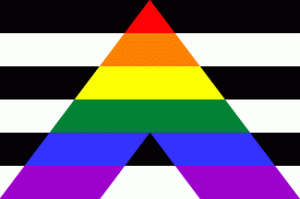In this weeks reading, “Combatting Intentional Bigotry and
Inadvertently Racist Acts”, Fletcher Blanchard talks about racism, specifically
on college campuses. He talks about how,
for a lot of white people, college is their first experience with people of
color. Unfortunately, that also means
that those same people have never seen the impact racism can have and so the
racist things people around them say or do can easily influence them. Blanchard tells us about an experiment that
was done on college campuses where they would ask people about their thoughts
on racism. Typically they would only
stop one person but sometimes they would stop two, on regular person and
another person that was in on the experiment.
It was found that when the person involved with the experiment talked
negatively about racism the other person was more likely to talk negatively
about it. But, conversely, when the
person involved condoned racism the other person was more likely to condone it.
So, Blanchard says that the best way to fight racism, whether
it is blatant or inadvertent, is to be an ally.
Speak up against racism when you hear it because “each of us can
influence each other by criticizing the willful bigotry of the mean spirited few
and gently guiding the well intentioned efforts of the inexperienced
many.” This is also what Andrea Ayvazian
talks about in “Interrupting the Cycle of Oppression: The Role of Allies as
Agents of Change”. She tells us “an ally
is a member of a dominant group in our society who works to dismantle any form
of oppression from which she or he receives the benefit”. Allies can be very important people in the
fight for change because while the people being oppressed may not be listened
to, the allies can be their voice. They
can also be important as role models.
Most kids don’t grow up with a “white anti-racist (or civil rights
worker, or someone who fights racism)” to look up to. Allies can be the ones that kids can look up
to and teach them about any of the –isms in our world and how to fight it.
Some of you may have noticed how I kept saying "Allies can be..." because in my experience in the LGBT+ community allies aren't always so helpful. In this video, I feel that tip number 3 is the most important, she say "Speak Up, Not Over". Especially on the internet, I have seen many people who have called themselves allies but were basically just doing it to look like a good person. They would make such a big deal about how great of an ally they were, etc. but then would never actually talk about any of the issues faced in the community. It even got to a point where the acronym was updated to LGBTQIA and a lot of the allies were so excited that they got included into the acronym because they were so important. Except, that A that was added was for asexuals, not for allies, but many ignored that fact and continued saying it was for them. I know, obviously, that not all allies are like this and it could just be a few making a bad name for the many but I felt that it was important to mention.


Blanchard is stating a valid point. I am one of the group of white people who have not exposed to a presence of people of color. It is something that must be fixed however I am not sure we can do much about where we grow up. Some people live around more people of color while others such as myself do not. I went to a school that had a student body of 99 % white. I am not racist, I simply ended up in an area where there was a low population of people of color.
ReplyDelete